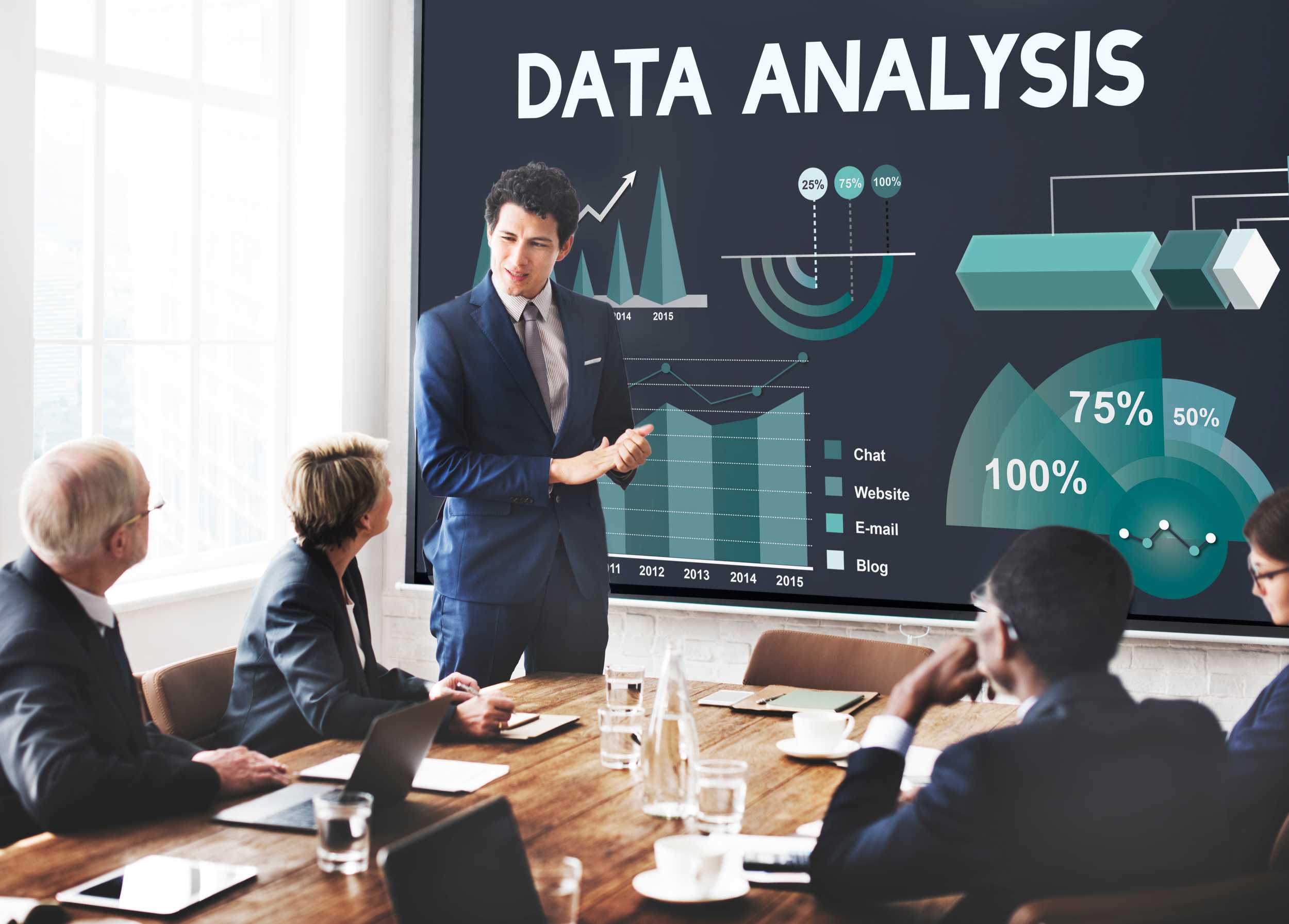Subscribe
Subscribe to EduBridge Blogs
Data analytics is one of the most in-demand jobs in the world today. A person specializing in collecting and analyzing data is a data analyst. Data analysts are imperative to numerous businesses in several industries that rely on data. You will, therefore, need to learn and master data analysis, if you’ve decided to become a data analyst or transition to a data analytics job to advance.
A Data Analyst needs both hard and soft skills in various combinations. A data analyst’s skill set should be diverse. From imaginative thinking and attention to detail to good communication skills, a data analyst should be armed with these basic skills since data analysis is ultimately about extracting and expressing the knowledge contained in data. Yet the technical skills necessary to become a data analyst lay the groundwork for all the data analysis abilities you’ll need starting with a firm grasp of a few essential programming languages. A data analyst course should include the technical instruction and practical experience required for data-related occupations.

What are the Technical Skills Required for Data Analysts
To begin with, it’s critical to comprehend how a data analyst works. They use technology tools to analyze a large amount of raw data that aids them in reaching wise conclusions. Data analysts usually do these activities in addition to fixing faulty data, evaluating data quality and producing reports for their company.
Data analysts must be well-rounded technically to do each of these jobs. These are a few technical skills to focus on.
- Data Visualization
The capacity to display data findings using graphics or other visuals is known as data visualization. This has just one simple goal: Even for individuals without formal training in data analysis it makes it easier to comprehend data-driven insights. Data analysts can use data visualization to assist decision-makers in finding patterns and quickly learning intricate concepts.
- Data Cleansing
It’s one of the essential phases in putting together a helpful machine learning model, and it frequently takes up a large portion of any data analyst’s day. Even simple algorithms can produce surprising insights when given a clean dataset. On the other hand, incomplete data might result in deceptive trends and steer a company in the wrong direction.
- Data Management
The techniques of gathering, organizing and keeping data in a practical, secure and economical way are referred to as data management. Data analysts frequently manage data in some way even though some organizations will have jobs such as data architects and engineers, database administrators and information security analysts to do the same job to ensure perfection.
- Structured Query Language (SQL)
The preferred database language in the field of data analytics is called Structured Query Language (SQL). It’s also the most crucial ability a data analyst should possess. A formal language called SQL is used to query a collection of data. You can collect specific data and update existing data. Large databases that some spreadsheets can’t handle are also processed using this language. As a result, most job postings for data analysts always specify SQL proficiency as a necessity.
- Spreadsheets
Even though they are outdated, several spreadsheets have consistently demonstrated their data processing abilities. They remain the preferred tool for data work because they are straightforward and user-friendly. Spreadsheets have continued to be a staple for businesses in various industries. So, mastering spreadsheets is required to improve your chances of being hired as a data analyst.
- MATLAB
MATLAB is a multi-paradigm numeric data centre and programming language that, among other things, makes it easier to create algorithms, manipulate matrices and create data visualizations. Businesses intrigued by big data have begun to switch to MATLAB because it enables analysts to drastically cut the time they traditionally spend pre-processing data making it straightforward to clean, organize and visualize data swiftly.
- Machine Learning
It’s optional for data analysts to be skilled in machine learning. Yet, given how vital machine learning has grown as a development in data analytics; it is becoming more and more critical. Having this ability entails being able to create algorithms that are intended to find patterns in large amounts of data. Your algorithms should get increasingly precise and intelligent as they process more data.
- Statistical Programming
Thanks to statistical programming languages like R or Python, you can run complex analyses in ways that Excel cannot. You can more effectively clean, analyze and visualize massive data sets if you can create programmes in these languages.
Learning at least one of the two open-source languages would be advisable. Similar data science tasks can be completed using either language. Python is the more widely used of the two and is typically a more straightforward language to study. R was created specifically for analytics.
- Calculus and Linear Algebra
It is essential to have strong mathematical skills in data analytics. Two specific areas of mathematics—linear algebra and calculus take centre stage in analytics.
Linear algebra has deep learning and machine learning applications since it allows for vector, matrix and tensor operations.
The aim, cost, and loss functions that show algorithms how to achieve their objectives are developed using calculus.
- Econometrics
Economists utilize mathematical and statistical data models to understand economics to anticipate future trends based on historical data. Data analysts looking for work in the finance industry, particularly at investment banks and hedge funds must be well-versed in econometrics.
What are The Soft Skills Required for Data Analysts
Data analysts must possess all the above technical abilities, but technical knowledge is needed to lead to a successful profession. Even if your credentials as a data analyst are impeccable you may never be employed. Data analysts need several softer, non-industry-specific abilities to be successful. Let’s take a look at them:

- Critical Thinking and Problem-Solving
It is not sufficient for a data analyst to merely examine data. To properly comprehend the figures, you must see past them. You need to have the ability to think critically and solve problems to be able to accomplish this. The duties of a data analyst include data analysis, pattern recognition and information extraction. You have to think more deeply about it instead of just processing facts.
- Observation of Details
Data analysis requires a keen eye for detail. As a data analyst, you should be able to locate and recognize the tiniest hints of a larger message concealed in plain sight in a massive data collection.
- Team Player
One person can complete most of a data analyst’s activities, yet the outcomes significantly impact the company at all levels. As a result, to ensure that the aims and objectives of the business are realized, data analysts must be strong team players and willing to collaborate with various people. Data analysts must collaborate with people at different levels to complete the task.
- Communication
You must ultimately be able to communicate your thoughts to others. Being a successful data analyst requires being “bilingual.” You should be able to discuss the technical topics with your trained colleagues and present concise, high-level explanations in a way that aids decision-makers focused on business rather than confound them.
How to Get Yourself Trained for a Data Analyst Role
A degree is optional to work as a data analyst. Employers want to know if you have the qualifications for the position because data analysts are in high demand. If you don’t have a degree, concentrate on excelling with the most excellent work in your portfolio.
Choose the Certification Program in Data Analytics from Edubridge if you want to develop career-ready data analyst abilities without investing the time or money in a degree. This program will advance your professional development by giving you opportunities for hands-on training and a deeper grasp of the field.
This course will help you understand Machine Learning and its algorithms and Data Analytics tools including Python, R, Excel, VBA, and Tableau. You will become more capable and get practical experience thanks to the project-based and experiential training methodologies for the program delivery. Throughout your training program, the “Live Online Sessions” will provide complete access and ongoing communication with the master trainer.

Getting started with Data Analytics Certification
A professional certificate program has many advantages. One is that it boosts your chances of getting promoted or paid more at your current company while creating new work options. As a result, upgrading one’s skills is advantageous for working professionals and all recent grads.
The trainers of EduBridge conduct the training in English. It is a blended learning curriculum with instructor-led training sessions, self-paced modules, practical exercises and knowledge-based exams. It comes with coding evaluations and case studies that cover application to implementation, mock interviews, and much more. All of your coding assessments will be evaluated by our team on the online site, and we’ll submit active projects to GitHub.
Program Highlights
- After completing these courses, 67% of students began a new career.
- 40% of the students benefited tangibly from their careers
- 18% received a pay raise or a promotion.
- Certificate of Completion in Digital Format
- Placement Support through the EduBridge Employment Portal
- Income: up to 8 LPA
Recruiters are constantly seeking candidates with the necessary analytical and logical thinking abilities. Hence, this course involves an expert “Aptitude Skills” system worth INR 3000!
This program offers the following skills:
- Excel, R, and Python are all highly recommended open-source languages and will help you become a master of data analytics.
- Learn more about SAS the most used analytics program.
- Assist you in maximizing your use of the VBA programming language.
- Give you the knowledge and abilities required to use Tableau in analytics which is one of the most in-demand tools for data visualization.
- Teach you about machine learning with Python and carry out capstone projects and projects like spam classifiers, churning inboxes and noise reduction from photos.
Recent Blogs
Accelerate Your Career with Expert Guidance and Guaranteed Job*!
"*" indicates required fields







